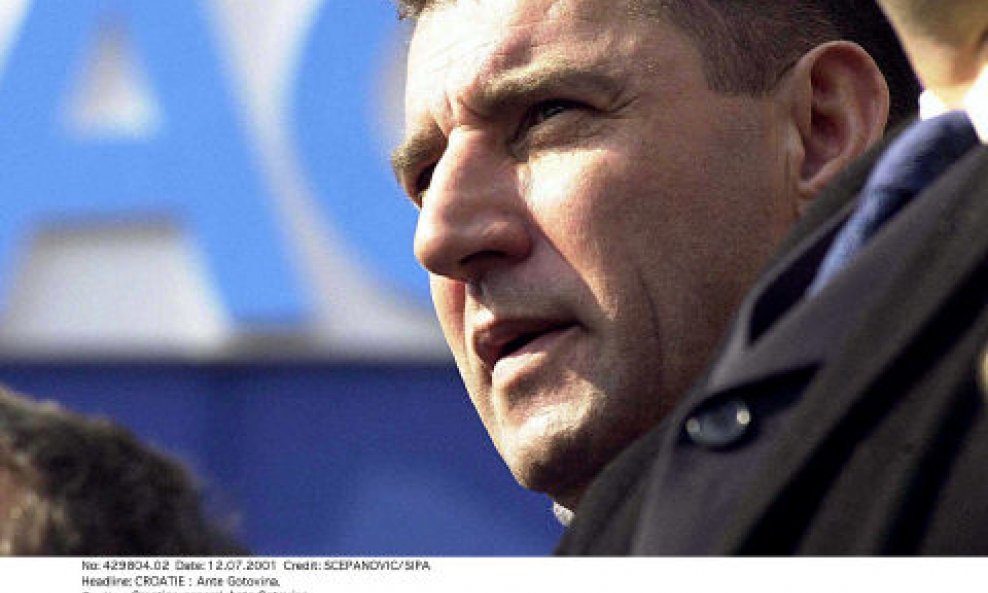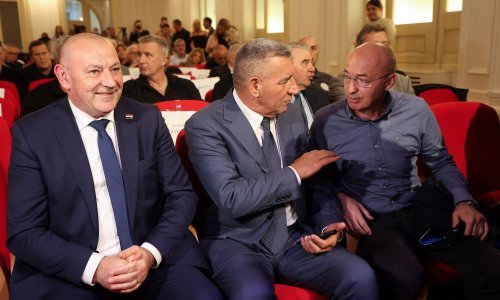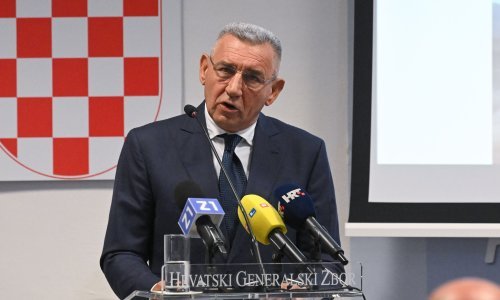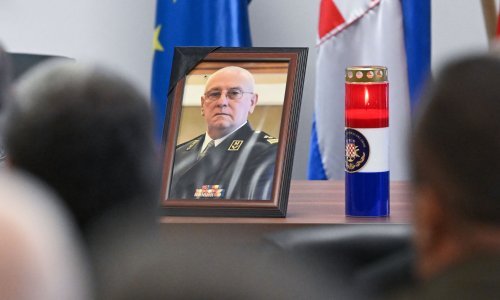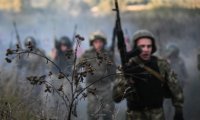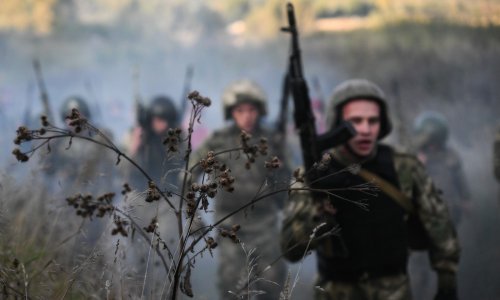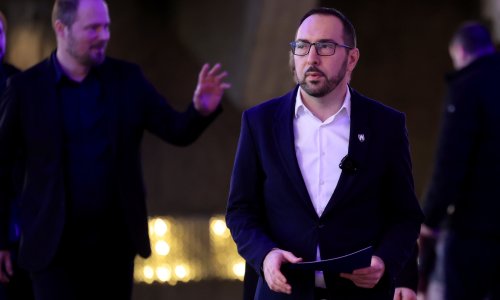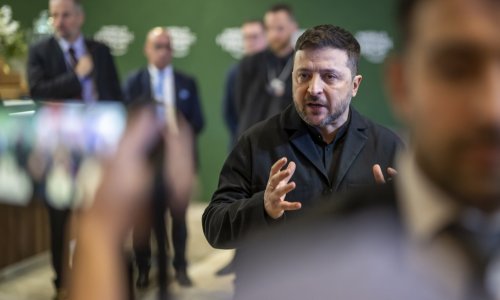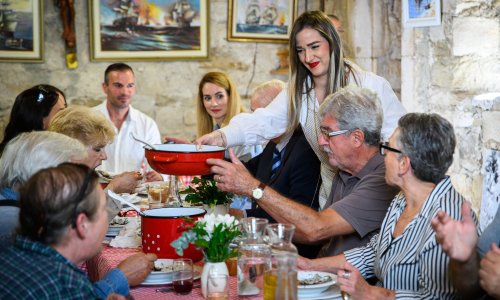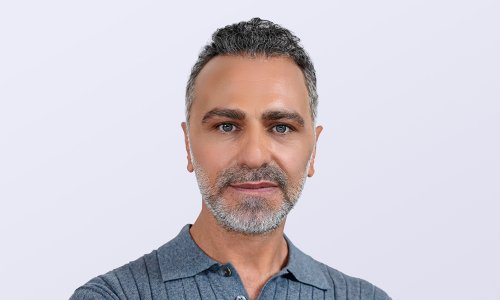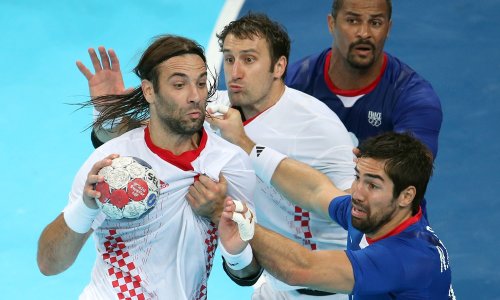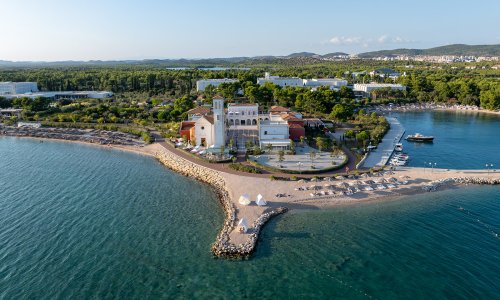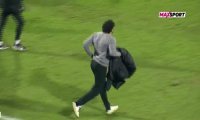The defence team representing Croatian general Ante Gotovina before the International Criminal Tribunal for the former Yugoslavia (ICTY) in The Hague has called for "a reversal of all erroneous findings", based on which the Trial Chamber sentenced Gotovina to 24 years' imprisonment, and "a finding of 'not guilty' on all counts, in its notice of appeal that was made public on the tribunal's website on Tuesday.
The defence said that the entire judgement was based on the Trial Chamber's erroneous inference that all artillery projectiles falling beyond 200 meters of designated military targets were unlawful and represented an attack on a civilian target.
"Even if the Trial Chamber's arbitrary 200 meter rule is accepted, and its numerous factual and legal errors are disregarded, the Judgement amounts at best to a remarkable finding that out of more than 1,205 artillery projectiles, only 5% impacted beyond the Trial Chamber’s acceptable range. In other words, the Trial Chamber infers a JCE (joint criminal enterprise) to commit crimes against humanity and war crimes from an artillery attack in which 95% of projectiles were satisfactorily shown to have been directed at military objectives," the defence said.
The evidence does not show that five per cent of artillery projectiles, which are presumed to be unlawful, hit civilian targets, as was inferred by the Trial Chamber, thus shifting the burden of proof from the prosecutor to Gotovina to prove that those were not civilian targets.
The artillery attacks in question were directed at Knin, Gracac, Obrovac and Benkovac.
"Had the Trial Chamber elected to adopt the Prosecution's position of a 400 meter range of error, it would have found that only 13 out of at least 1,205 projectiles impacted beyond that margin, a 99% rate of accuracy. No reasonable trier of fact could have concluded based on a 1% error rate that there was an unlawful attack against a civilian population," the defence said.
"In relation to deportation, the Trial Chamber rejected reliable evidence of RSK (Republic of Serb Krajina) evacuation orders and propaganda-induced fear of a Croatian military victory as causes of the departure of Serb civilians. Rather, the Trial Chamber concluded that the 'primary and direct cause' of the departure of 20,000 Serb civilians was the 1% to 5% of artillery projectiles, most of which fell into empty fields," the defence said, adding that the judgement "imposes a standard so exacting that it renders lawful warfare impossible for military commanders."
The defence said that the Trial Chamber erred in fact and law when it concluded that the attack on the commander-in-chief of Serb forces, Milan Martic, was
evidence of the indiscriminate nature of the attack on civilians.
The Trial Chamber erred in fact and law that there existed a joint criminal enterprise by the Croatian state and military leadership to expel the Serb population and that Gotovina was a member of such enterprise. It erred in fact and law when finding that Gotovina made "a significant contribution" to the joint criminal enterprise by sharing the intent to participate in the persecution and by failing to prevent crimes and punish the perpetrators. It also erred in fact and law when finding that Gotovina had command and control over the military police and that he was aware of attacks on civilians, the defence said.
The notice of appeal, filed on Monday, showed that the Gotovina defence team was reinforced with Swiss attorney Guenael Mettraux.
In its judgement of April 15, the Trial Chamber sentenced generals Gotovina and Mladen Markac to 24 and 18 years in prison respectively for their roles in the joint criminal enterprise the aim of which was to forcibly and permanently remove the Serb population from the occupied areas of Croatia. A third general, Ivan Cermak, was acquitted and released.



